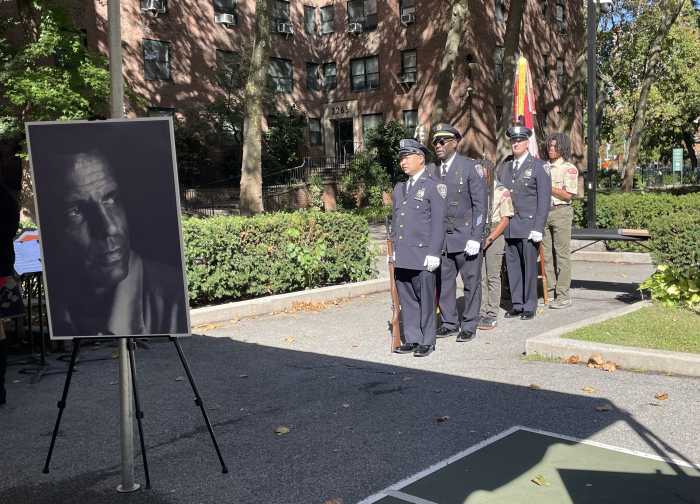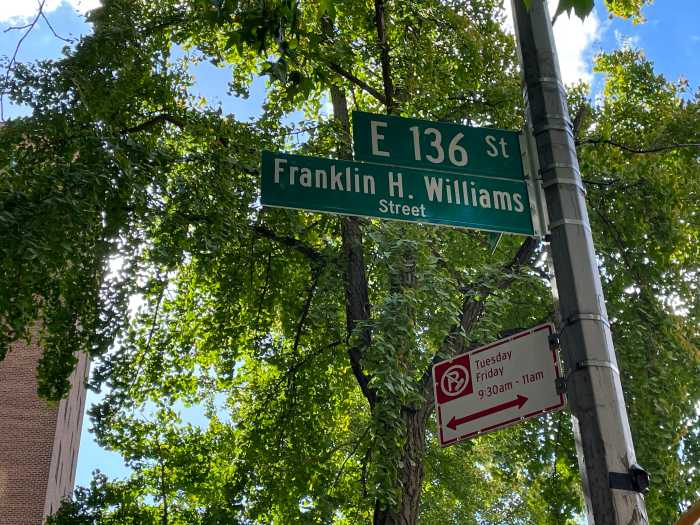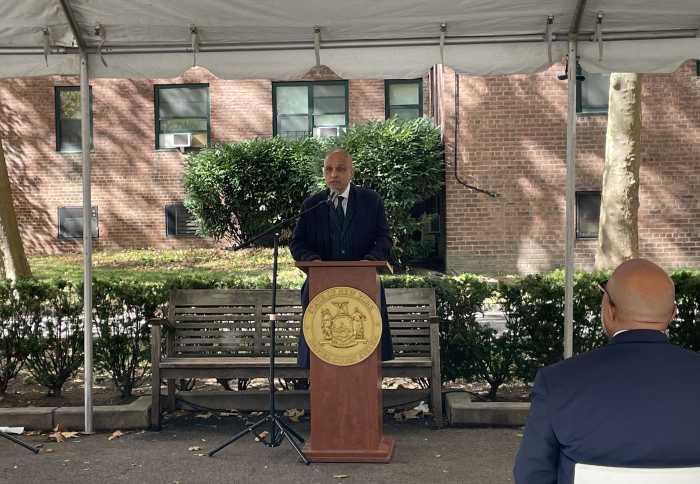Civil rights attorney and diplomat Franklin H. Williams was honored at a street naming event at Riverton Housing Complex on Oct. 22, 2025.
On a sunny afternoon in Harlem, judges, political figures and community organizers gathered to present the late Franklin H. Williams with a gift for his 108th birthday: the dedication of a street corner just outside the housing complex where he spent much of his life — one built in response to segregation he’d help to dismantle in his storied career as a civil rights attorney and diplomat.

Williams, a native New Yorker and 1945 graduate of Fordham University’s law school, served as assistant counsel to Thurgood Marshall and later as the NAACP’s West Coast regional director, contributing to major advancements in school desegregation and restrictive covenants, including fighting against the systematic exclusion of Black jurors decades before the practice was formally ended in the 1986 U.S. Supreme Court decision Batson v. Kentucky.
The civil rights attorney was also instrumental in developing the Peace Corps and worked as its regional director for Africa before going on to serve as the U.S. ambassador to Ghana.
As chair of the New York State Judicial Commission on Minorities from 1987 to 1990, Williams helped to orchestrate a study of the treatment of minority group members in state courts, releasing a 1991 report that revealed widespread racial bias in courts and a lack of diversity on the bench.

The commission is now a permanent entity named after Williams, advising state court decision makers on issues affecting both employees and litigants of color.
“If you mention a person’s name, and keep their stories alive, then they will be a part of you forever,” Joyce Hartsfield, who served for nearly three decades as the executive director of the Franklin H. Williams Judicial Commission said at the Oct. 22, 2025 street naming event.
Other speakers included Chief Judge of the New York Court of Appeals Rowan D. Wilson; Court of Appeals Associate Judge Shirley Troutman and Appellate Division, First Department Associate Justice Troy K. Webber, co-chairs of the Franklin H. Williams Judicial Commission; and former New York State Judicial Institute Dean Juanita Bing Newton, an original member of the FHW Judicial
Commission.

The intersection of 136th Street and 5th Avenue now named for Williams abuts the Riverton Housing Complex, where Williams lived for much of his life.
Riverton was built in the 1940s as an answer to public outcry over the segregated, post-World War II era Stuyvesant Town housing project, which did not allow Black residents at the time.
Its other notable residential alumni include former New York City Mayor David Dinkins; New York Supreme Court Judge Bruce Wright; and United States District Court Judge Constance Baker Motley.
→ Continue reading at amNY
